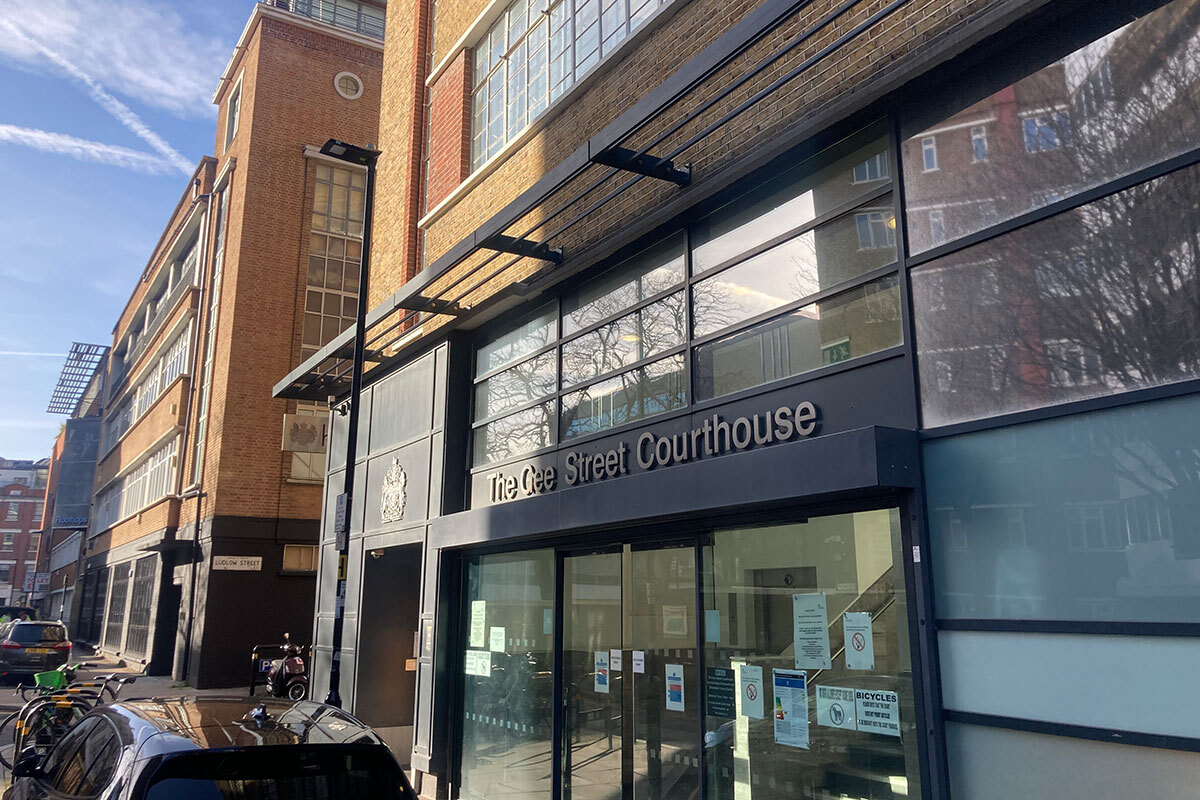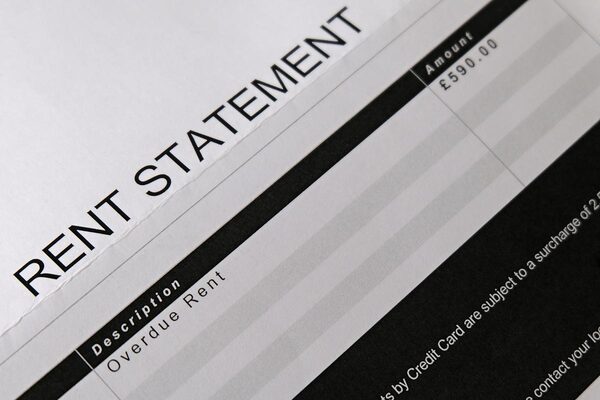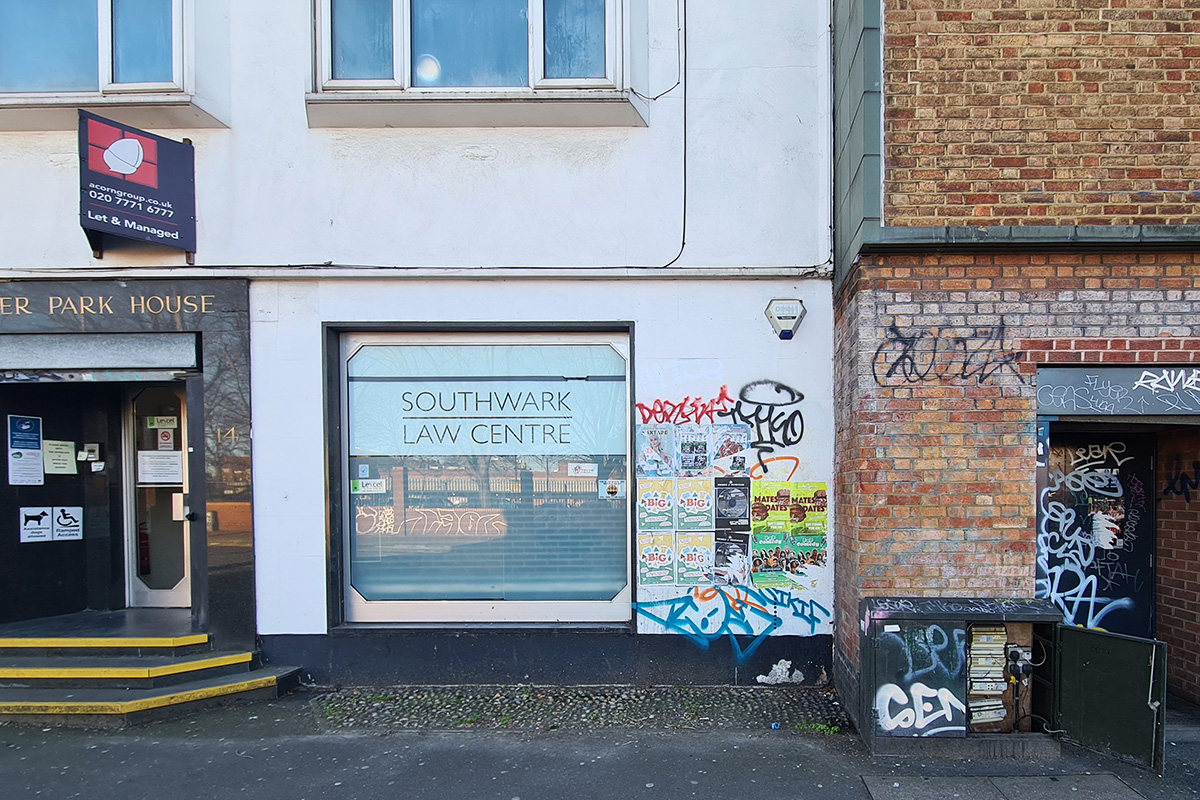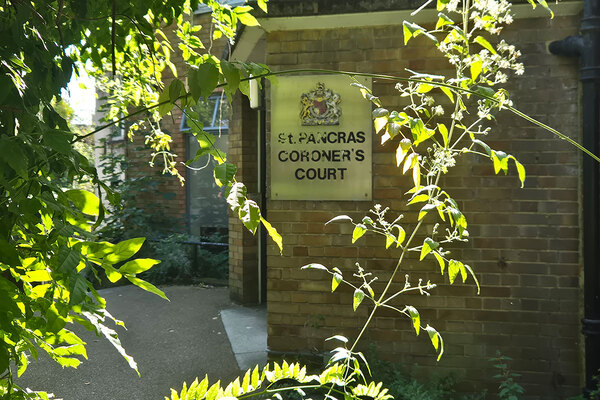You are viewing 1 of your 1 free articles
What a day at a possession hearing says about the housing crisis
James Riding reports from a central London courtroom as tenants fight to keep their home after falling into rent arrears
Nearly every weekday, dozens of tenants arrive at the Gee Street Courthouse in Clerkenwell to learn whether they will be able to keep their home.
This slightly shabby 2000s building, with its hospital lighting and malfunctioning lifts, is where possession hearings take place: landlords attempting to take back their properties.
Inside Housing arrives to waiting rooms packed with tenants, their friends and family, and children burbling in buggies.
Lawyers in suits and ties chat amiably with each other, while tenants are accosted by duty solicitors trying to help them and council representatives hash out a repayment plan.
Since the hearings are so short and many tenants do not turn up, as many as eight defendants can be given the same start time. “It’s a bit like hospital appointments,” a lady at the front desk tells me. “It’s whoever’s ready.”
The first thing that is remarkable about these hearings is the speed with which justice is dealt – or deferred. Each one is under 15 minutes. In one morning, there were 13 hearings: five suspended possession orders are granted, seven cases are adjourned to a later date, and one outright possession order is given to a private landlord.
Even if many cases are adjourned, simply hearing the facts of each one is revealing. Family breakdowns, pensioners in poverty, administrative errors – these are lives getting harder under rising rents and a cost of living crisis.
The second remarkable thing is that the usher will not let me in to the courtroom. “Just give me a minute. Take a seat, please,” he says, flustered. I tell him I have sat in the waiting room for 20 minutes. He calls the defendant of the first case in, studiously ignoring my glances.
Fifteen minutes later, he re-emerges to call the second case. “Can I come in now?” I ask.
“I’ve got half a dozen things on at the moment. I’ll take you into the next one.”
On the courtroom door there is a sign that reads “open justice is a fundamental principle of our justice system. This means that you can attend a public hearing in person”.
I barge through the door and sit down. I am the only spectator. Cardboard has been taped on the ceiling over two spotlights that are blinking uncontrollably, presumably to avoid blinding the judge.
‘I apologise for putting myself in this situation’
The defendant, a Southwark Council tenant, is called in. “A solicitor wasn’t offered to me until a second ago, but it’s alright, we’re here now,” she says.
She has arrears of £5,466. Southwark is looking for a suspended possession order. Unless she pays her rent plus £100 a month to clear the debt, the council can take her property without having to come back to court.
“I apologise for putting myself in this situation,” she says. “I’m ashamed. I’ve lived in this property since I was 18. I’m working as a carer and my wages change every month… I put myself into a dirty, horrible situation that I am ashamed of.”
“The claimant wants you to pay your current rent plus £100 every four weeks,” says the judge. “Can you pay?”
“I have no choice right now, my darling,” she says.
“She is in work and she can afford the terms requested,” says the judge. But she adds: “Having heard from the defendant, I propose to give her a further chance.” The case is adjourned for three months “to see how you get on”, the judge says.
“Can you tell me what you’re going to do?” she asks.
“I’m going to work my butt off to pay my rent arrears,” replies the tenant.
Case closed in less than 15 minutes.
The next case is listed as ‘Lambeth v Mr Daniel Quartey’. However, standing in for the defendant is a woman and her child, who is whimpering and wandering about the courtroom.
Lambeth Council’s representative asks for an adjournment. “The case is quite a difficult one,” he says. “The person we issued proceedings against is no longer at the property, just his wife and son. We’re trying to allow time for the tenancy to be put in her name.”
The household is in £4,452 of arrears, but Ms Quartey is willing to make payments.
“I’m reluctant to make an order against someone who is not here, who is not in the property,” says the judge. “Are you in contact with your ex-partner at all?”
“No,” says the duty solicitor as Ms Quartey stares at the floor.
Adjourned, again, until the tenancy is transferred. The claim should be struck out if nothing is received by 1 February 2025, the judge says. “If it gets resolved before then, great.”
Reasons for rent arrears
Ahead of my morning at Gee Street, I speak to Stuart Hearne, director of Islington Law Centre, which provides legal aid for tenants during possession hearings. He says the most common causes of such cases are rent arrears because of benefit problems, as well as some counter-claims for the landlord if it has not done repairs.
In many courts up and down the country, private landlords will attempt to reclaim their properties using Section 21 ‘no-fault’ evictions, which are still in place five years after the government promised to ban them.
“There is no private rented sector in Islington if you’re poor,” Mr Hearne says. “The classic case is a single mother in social housing – if they lose that, they’re not going to live in Islington.”
The coronavirus pandemic caused a “big change”, he says. “We’ve always worked with people who can’t make ends meet”, but because the courts were closed for a long while the backlog of cases built up and some housing associations “held back a bit”, “now rent arrears tend to be much higher”, he adds.
For duty solicitors, the sliver of opportunity to help someone is vanishingly narrow. “We try to work out in two minutes what’s happening to see what can be done, what’s the underlying issue and can it be resolved,” Mr Hearne says. He then tries to talk to the landlord. “Everyone you see is an opportunity, but if you do it badly, you miss that chance.”
In many cases there is “a bureaucratic issue”, he explains, such as a death or loss of a job. Often people have gaps in their benefit. There is mutual interest in resolving such claims, he says, “the council wants money”.
“The classic case is a single mother in social housing – if they lose that, they’re not going to live in Islington”
Back in court, the duty solicitors are taking on several cases each in quick succession. Next is a frail, older Lambeth tenant in arrears of £1,815. She retired during the summer, her duty solicitor explains, and has not applied for pension benefit and housing benefit. “At the moment, she’s only living off £815 a month” – her state pension.
Lambeth wants the tenant to pay her existing rent, £723 a month, plus an extra £100 to pay down the arrears. She cannot afford it, her duty solicitor says. “She’s making rent contributions, but that’s about it. She’s left with £100 to pay for food and utilities.”
On top of this, the duty solicitor says there are severe disrepair issues in her home. Two rooms have no electricity. “There are leaks everywhere, drippings from the wall and the ceiling, mice and rats everywhere.” The judge adjourns for two months to allow the tenant to submit a defence and counterclaim.
Across all the hearings, the judge comes across as competent and diligent, establishing the facts in double time and pointing out errors. In one case, she notices the landlord has muddled up a date on the particulars of claim and adjourns for them to amend and refile the documents.
The judge is also unruffled in the face of a challenge. In one case, a young man who chose not to take help from a duty solicitor asks: “Why are they lying when I never missed a payment since October? It was a complete false accusation. I had to come from work today and book an Uber as well. It’s completely wrong for them to drag me to court for something we already agreed on.”
“I can’t give you legal advice,” says the judge. “The law centre may be able to help you.” She puts the case on ice for a year, provided the tenant keeps making payments.
In another case, the landlord tells the judge they are looking for an older tenant to downsize, alongside a suspended possession order. The man is £2,413 in arrears and wearing a World Economic Forum backpack. His duty solicitor says he has a lot of valuable belongings and will not be able to afford storage.
“He’s got a spare bedroom,” says Lambeth Council. “We propose he moves to a one-bed flat.”
“I can’t order him to agree to something,” the judge retorts. She grants the suspended possession order but adds: “I shouldn’t order defendant to downsize. That is for parties to work out between themselves.”
As the hearings unfold, the circularity of the process becomes apparent. Social housing is meant to be a safety net, paid for by rent, which generally comes from state benefits if the tenant is not in work.
If a tenant is evicted, they will present themselves to the council as homeless, at which point the council will have to pay to house them in temporary accommodation, often a bed and breakfast or hotel. It is far worse for the tenant and far more expensive for the council.
I came away impressed by the judge’s sympathy and understanding throughout the day, but it left me wondering whether a 15-minute hearing is really long enough for justice to be served?
Recent longform articles by James Riding
First large landlord gets C1 – Inside Housing speaks to its chief executive
Places for People has just become one of the first large housing associations to get a top C1 rating under the consumer standards. James Riding talks to Greg Reed, its chief executive, about tenant satisfaction, the ESG backlash, the role of smaller landlords in meeting the 1.5 million homes target and his new well-being campaign
Stock transfers and development deals: the new wave of delivery by for-profits
For-profit housing providers have entered the affordable housing space in a big way. James Riding and Jenny Messenger find out who the biggest players are, who is backing them and what strategies they are taking
The TikTok entrepreneur making a profit from ‘social housing’
On TikTok, Jack Wicks has been advertising high-return investments in his company Social Housing Group. James Riding reports
Sign up for our daily newsletter
Already have an account? Click here to manage your newsletters
Related stories












